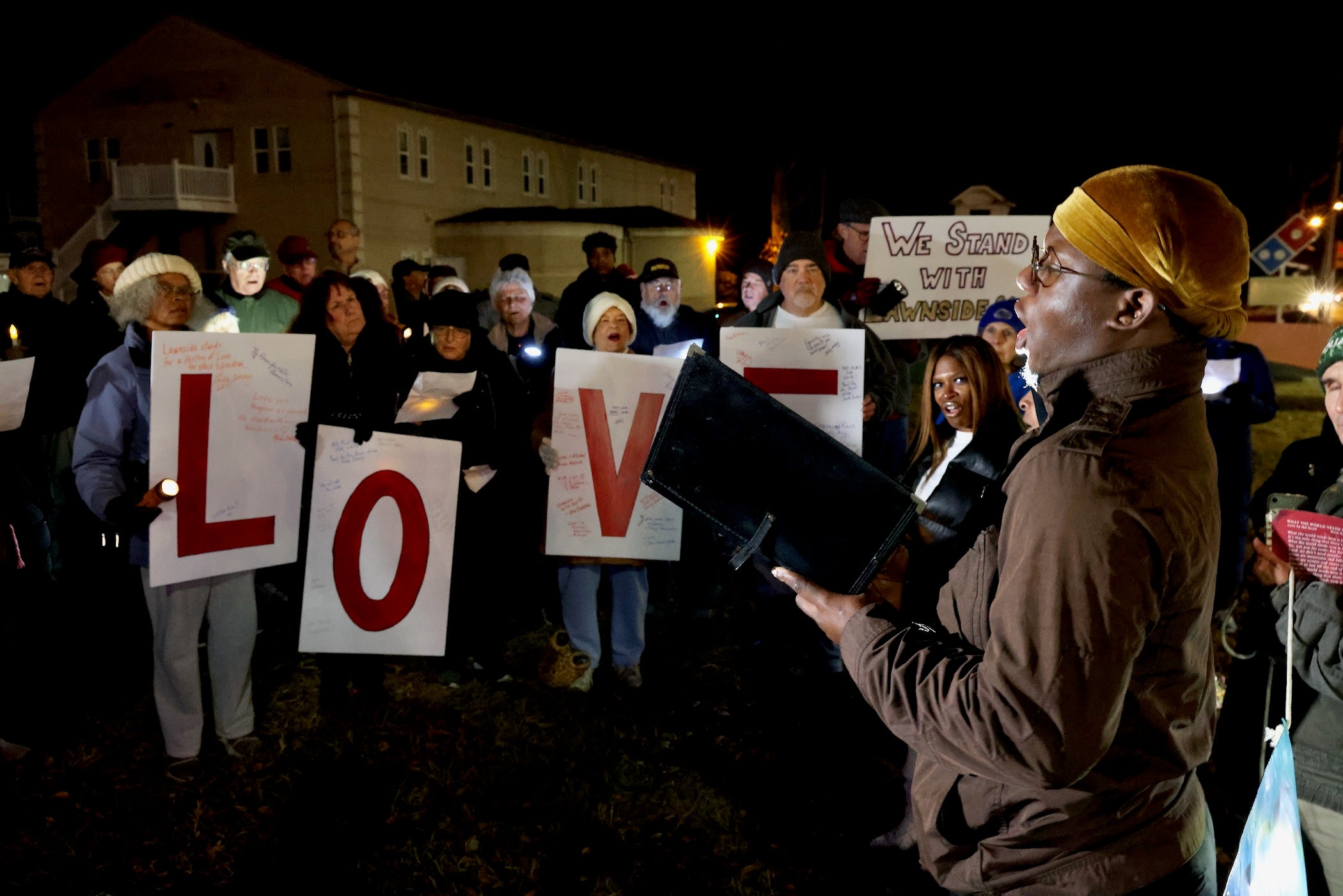Education
Florida Schools Try to Adapt to New Rules on Gender, Bathrooms and Pronouns

As a new school year begins in Florida this week, parents are filling out a flurry of new forms — specifying a student’s nickname or new name; allowing a child to check certain books out of the library; and opting in or out of health services ranging from counseling to temperature checks, calamine lotion and ice packs.
The new bureaucracy is an offshoot of Gov. Ron DeSantis’s increasingly muscular push for “parental rights” in education, with new laws and regulations that broadly restrict classroom instruction on gender and sexuality, including in high school, and prevent transgender students and staff members from using group bathrooms that match their gender identity.
Teachers will also be barred from asking students for their preferred pronouns and could lose their professional certification for violating the new laws. Course lists and classroom libraries are also under the microscope, with districts seeking to excise material that touches on gender and sexuality, including in classics like “Romeo and Juliet.”
Here is how some Florida school districts are interpreting the new laws.
They Have a Form for That
The new regulations have created a bureaucratic tangle, with several counties sending parents forms that must be filled out if they want their child referred to by something other than their legal name.
In Orange County, in and around Orlando, the district told parents that they must fill out the form even if “Robert” wishes to be called “Rob” — or if a trans child now goes by “Roberta.”
But school staff members who object to pronoun changes “may elect” not to use she/her pronouns when referring to Roberta, according to the school district’s attorney, John C. Palmerini. In a memo to district staff, he cited House Bill 1069, a law signed by Governor DeSantis in May, which defines “sex” as corresponding to “external genitalia present at birth,” and also broadly restricts instruction on gender and sexuality.
Mr. Palmerini acknowledged in the memo that there was confusion about whether staff members could use a transgender student’s preferred pronouns after a request by that student’s parent. “The State Board of Education has not given guidance on this precise question,” he wrote, but he urged caution — suggesting teachers concerned about liability avoid the issue by referring to students by their last names.
But Carlos Guillermo Smith, a senior policy adviser for Equality Florida, an L.G.B.T.Q. rights group, said, “The districts are being put in a terrible position.” The sweeping restrictions, he said, are “the inevitable result of vague and bigoted legislation.”
In Palm Beach County, Michael Woods, a special-education teacher, said he was told in a faculty training session on Wednesday that when referring to transgender colleagues, he should use the title “teacher” instead of their preferred honorific such as Mr. or Ms., if that honorific does not match their sex assigned at birth.
He was also told that he should not refer to transgender students by their preferred names unless he was certain a parent had returned a permission slip. He knew of one specific transgender student, he said, whose parents would be unlikely to do so because of religious objections.
“It stifles conversation,” Mr. Woods said of the new law. “It stifles the relationship you built with that young person.”
Palm Beach County schools did not immediately respond to a request for comment.
New Bathroom Rules
The new state regulations around bathroom use in schools are clearer. Students, staff members and visitors will be required to use either the bathroom corresponding to the sex they were assigned at birth, or use a single-stall restroom. Districts that violate this law can be fined up to $10,000.
Mr. Woods said the rule could essentially out transgender students or staff members against their will, since they might be observed visiting only the single-stall bathroom, or asking where it is.
Literature Under Scrutiny
In Lee County, on the Gulf Coast, parents will receive a new “media access form.”
They can allow their children unrestricted access to library books; prevent any access; or allow their children access to books except those that have been challenged and reviewed for objectionable material — even if the review found the book was not objectionable.
Under Florida law, members of the public can challenge any school library book, a process that has often been used to object to works that center on the L.G.B.T.Q. experience, or on concepts such a structural racism.
The Lee County school district did not respond to a request for comment. But Christy DeVigili of the Florida Citizens Alliance, a conservative group that supports the new education regulations, said she welcomed the new permission forms, even if left-leaning activists could use the same process to dispute books she might approve of.
“That is the beauty of democracy,” she said. “There is nothing stopping any parent from any side of the coin from challenging any book in any library.”
The overall goal, she said, was to give parents “the ultimate decision-making authority, which is really what the law is designed for.”
A separate regulation now requires that a state-certified media specialist reviews individual classroom libraries to ensure that no book contains banned content, such as depictions of “sexual conduct.”
That has led to some confusion. Hillsborough County, in Tampa, initially told educators that meant they could assign excerpts from “Romeo and Juliet” but not the full play, which implies that the teen lovers consummate their romance.
But that guidance, while potentially in line with the law, seemed to buck state policymakers’ intentions. On Tuesday, the state education commissioner, Manny Diaz, Jr., named “Romeo and Juliet” a “book of the month” for August, alongside “Up From Slavery” by Booker T. Washington.
On Wednesday, Hillsborough interim superintendent Van Ayres sent a letter to the community acknowledging that the Shakespeare guidance had “unfortunately created some confusion.”
“To be clear, we are teaching Shakespeare in a variety of ways in high schools, everything from short excerpts to full novel readings,” he wrote.
Courses Under Fire
The broad restrictions on instruction about gender and sexuality have threatened a number of courses, including Advanced Placement Psychology. The College Board, which runs the A.P. program, advised Florida districts not to offer the class, saying the banned material was central to the discipline and Florida students who took the class might not qualify for college credit.
On Aug. 4, Mr. Diaz told superintendents that he believed the class could still be taught “in its entirety,” and the College Board walked back its previous statements.
But given the conflicting guidance, districts are scrambling to figure out whether they should stick with the popular class or seek out alternatives.
The Florida Department of Education did not immediately respond to a request for comment.
There is also the matter of sex education. Previously, local districts had some discretion on how it was taught, though the state required an emphasis on abstinence. Now, the state is asserting the power to approve of all curriculum materials, and requiring that students be taught that the male and female reproductive roles are “binary, stable and unchangeable.”

Education
Video: Biden Apologizes for U.S. Mistreatment of Native American Children

new video loaded: Biden Apologizes for U.S. Mistreatment of Native American Children
transcript
transcript
Biden Apologizes for U.S. Mistreatment of Native American Children
President Biden offered a formal apology on Friday on behalf of the U.S. government for the abuse of Native American children from the early 1800s to the late 1960s.
-
The Federal government has never, never formally apologized for what happened until today. I formally apologize. It’s long, long, long overdue. Quite frankly, there’s no excuse that this apology took 50 years to make. I know no apology can or will make up for what was lost during the darkness of the federal boarding school policy. But today, we’re finally moving forward into the light.
Recent episodes in Politics
Education
Video: Los Angeles Bus Hijacked at Gunpoint

new video loaded: Los Angeles Bus Hijacked at Gunpoint
transcript
transcript
Los Angeles Bus Hijacked at Gunpoint
The person suspected of hijacking a bus which killed one person, was taken into custody after an hourlong pursuit by the Los Angeles Police Department early Wednesday morning.
-
“Get him.”
Recent episodes in Guns & Gun Violence
Education
The Youngest Pandemic Children Are Now in School, and Struggling

The pandemic’s babies, toddlers and preschoolers are now school-age, and the impact on them is becoming increasingly clear: Many are showing signs of being academically and developmentally behind.
Interviews with more than two dozen teachers, pediatricians and early childhood experts depicted a generation less likely to have age-appropriate skills — to be able to hold a pencil, communicate their needs, identify shapes and letters, manage their emotions or solve problems with peers.
A variety of scientific evidence has also found that the pandemic seems to have affected some young children’s early development. Boys were more affected than girls, studies have found.
“I definitely think children born then have had developmental challenges compared to prior years,” said Dr. Jaime Peterson, a pediatrician at Oregon Health and Science University, whose research is on kindergarten readiness. “We asked them to wear masks, not see adults, not play with kids. We really severed those interactions, and you don’t get that time back for kids.”
The pandemic’s effect on older children — who were sent home during school closures, and lost significant ground in math and reading — has been well documented. But the impact on the youngest children is in some ways surprising: They were not in formal school when the pandemic began, and at an age when children spend a lot of time at home anyway.
The early years, though, are most critical for brain development. Researchers said several aspects of the pandemic affected young children — parental stress, less exposure to people, lower preschool attendance, more time on screens and less time playing.
Yet because their brains are developing so rapidly, they are also well positioned to catch up, experts said.
The youngest children represent “a pandemic tsunami” headed for the American education system, said Joel Ryan, who works with a network of Head Start and state preschool centers in Washington State, where he has seen an increase in speech delays and behavioral problems.
Not every young child is showing delays. Children at schools that are mostly Black or Hispanic or where most families have lower incomes are the most behind, according to data released Monday by Curriculum Associates, whose tests are given in thousands of U.S. schools. Students from higher-income families are more on pace with historical trends.
But “most, if not all, young students were impacted academically to some degree,” said Kristen Huff, vice president for assessment and research at Curriculum Associates.
Recovery is possible, experts said, though young children have not been a main focus of $122 billion in federal aid distributed to school districts to help students recover.
“We 100 percent have the tools to help kids and families recover,” said Catherine Monk, a clinical psychologist and professor at Columbia, and a chair of a research project on mothers and babies in the pandemic. “But do we know how to distribute, in a fair way, access to the services they need?”
What’s different now?
“I spent a long time just teaching kids to sit still on the carpet for one book. That’s something I didn’t need to do before.”
David Feldman, kindergarten teacher, St. Petersburg, Fla.
“We are talking 4- and 5-year-olds who are throwing chairs, biting, hitting, without the self-regulation.”
Tommy Sheridan, deputy director, National Head Start Association
Brook Allen, in Martin, Tenn., has taught kindergarten for 11 years. This year, for the first time, she said, several students could barely speak, several were not toilet trained, and several did not have the fine motor skills to hold a pencil.
Children don’t engage in imaginative play or seek out other children the way they used to, said Michaela Frederick, a pre-K teacher for students with learning delays in Sharon, Tenn. She’s had to replace small building materials in her classroom with big soft blocks because students’ fine motor skills weren’t developed enough to manipulate them.
Michaela Frederick, a pre-K teacher in Sharon, Tenn., playing a stacking game with a student.
Aaron Hardin for The New York Times Preschoolers do not have the same fine motor skills as they did prepandemic, Ms. Frederick said.
Aaron Hardin for The New York Times
Perhaps the biggest difference Lissa O’Rourke has noticed among her preschoolers in St. Augustine, Fla., has been their inability to regulate their emotions: “It was knocking over chairs, it was throwing things, it was hitting their peers, hitting their teachers.”
Data from schools underscores what early childhood professionals have noticed.
Children who just finished second grade, who were as young as 3 or 4 when the pandemic began, remain behind children the same age prepandemic, particularly in math, according to the new Curriculum Associates data. Of particular concern, the students who are the furthest behind are making the least progress catching up.
The youngest students’ performance is “in stark contrast” to older elementary school children, who have caught up much more, the researchers said. The new analysis examined testing data from about four million children, with cohorts before and after the pandemic.
Data from Cincinnati Public Schools is another example: Just 28 percent of kindergarten students began this school year prepared, down from 36 percent before the pandemic, according to research from Cincinnati Children’s Hospital.
How did this happen?
“They don’t have the muscle strength because everything they are doing at home is screen time. They are just swiping.”
Sarrah Hovis, preschool teacher, Roseville, Mich.
“I have more kids in kindergarten who have never been in school.”
Terrance Anfield, kindergarten teacher, Indianapolis
One explanation for young children’s struggles, childhood development experts say, is parental stress during the pandemic.
A baby who is exposed to more stress will show more activation on brain imaging scans in “the parts of that baby’s brain that focus on fear and focus on aggression,” said Rahil D. Briggs, a child psychologist with Zero to Three, a nonprofit that focuses on early childhood. That leaves less energy for parts of the brain focused on language, exploration and learning, she said.
During lockdowns, children also spent less time overhearing adult interactions that exposed them to new language, like at the grocery store or the library. And they spent less time playing with other children.
Kelsey Schnur, 32, of Sharpsville, Pa., pulled her daughter, Finley, from child care during the pandemic. Finley, then a toddler, colored, did puzzles and read books at home.
But when she finally enrolled in preschool, she struggled to adjust, her mother said. She was diagnosed with separation anxiety and selective mutism.
“It was very eye-opening to see,” said Ms. Schnur, who works in early childhood education. “They can have all of the education experiences and knowledge, but that socialization is so key.”
Preschool attendance can significantly boost kindergarten preparedness, research has found. But in many states, preschool attendance is still below prepandemic levels. Survey data suggests low-income families have not returned at the same rate as higher-income families.
“I have never had such a small class,” said Analilia Sanchez, who had nine children in her preschool class in El Paso this year. She typically has at least 16. “I think they got used to having them at home — that fear of being around the other kids, the germs.”
Time on screens also spiked during the pandemic — as parents juggled work and children cooped up at home — and screen time stayed up after lockdowns ended. Many teachers and early childhood experts believe this affected children’s attention spans and fine motor skills. Long periods of screen time have been associated with developmental delays.
Heidi Tringali, an occupational therapist in Charlotte, N.C., playing with a patient.
Travis Dove for The New York Times
Children are showing effects of spending time on screens, Ms. Tringali said, including shorter attention spans, less core strength and delayed social skills.
Travis Dove for The New York Times
Heidi Tringali, a pediatric occupational therapist in Charlotte, N.C., said she and her colleagues are seeing many more families contact them with children who don’t fit into typical diagnoses.
She is seeing “visual problems, core strength, social skills, attention — all the deficits,” she said. “We really see the difference in them not being out playing.”
Can children catch up?
“I’m actually happy with the majority of their growth.”
Michael LoMedico, second-grade teacher, Yonkers, N.Y.
“They just crave consistency that they didn’t get.”
Emily Sampley, substitute teacher, Sioux Falls, S.D.
It’s too early to know whether young children will experience long-term effects from the pandemic, but researchers say there are reasons to be optimistic.
“It is absolutely possible to catch up, if we catch things early,” said Dr. Dani Dumitriu, a pediatrician and neuroscientist at Columbia and chair of the study on pandemic newborns. “There is nothing deterministic about a brain at six months.”
There may also have been benefits to being young in the pandemic, she and others said, like increased resiliency and more time with family.
Some places have invested in programs to support young children, like a Tennessee district that is doubling the number of teaching assistants in kindergarten classrooms next school year and adding a preschool class for students needing extra support.
Oregon used some federal pandemic aid money to start a program to help prepare children and parents for kindergarten the summer before.
For many students, simply being in school is the first step.
Sarrah Hovis, a preschool teacher in Roseville, Mich., has seen plenty of the pandemic’s impact in her classroom. Some children can’t open a bag of chips, because they lack finger strength. More of her students are missing many days of school, a national problem since the pandemic.
But she has also seen great progress. By the end of this year, some of her students were counting to 100, and even adding and subtracting.
“If the kids come to school,” she said, “they do learn.”
-

 Business1 week ago
Business1 week agoColumn: Molly White's message for journalists going freelance — be ready for the pitfalls
-

 Science5 days ago
Science5 days agoTrump nominates Dr. Oz to head Medicare and Medicaid and help take on 'illness industrial complex'
-

 Politics6 days ago
Politics6 days agoTrump taps FCC member Brendan Carr to lead agency: 'Warrior for Free Speech'
-
/cdn.vox-cdn.com/uploads/chorus_asset/file/25739950/247386_Elon_Musk_Open_AI_CVirginia.jpg)
/cdn.vox-cdn.com/uploads/chorus_asset/file/25739950/247386_Elon_Musk_Open_AI_CVirginia.jpg) Technology6 days ago
Technology6 days agoInside Elon Musk’s messy breakup with OpenAI
-

 Lifestyle7 days ago
Lifestyle7 days agoSome in the U.S. farm industry are alarmed by Trump's embrace of RFK Jr. and tariffs
-

 World6 days ago
World6 days agoProtesters in Slovakia rally against Robert Fico’s populist government
-

 News6 days ago
News6 days agoThey disagree about a lot, but these singers figure out how to stay in harmony
-

 News6 days ago
News6 days agoGaetz-gate: Navigating the President-elect's most baffling Cabinet pick














